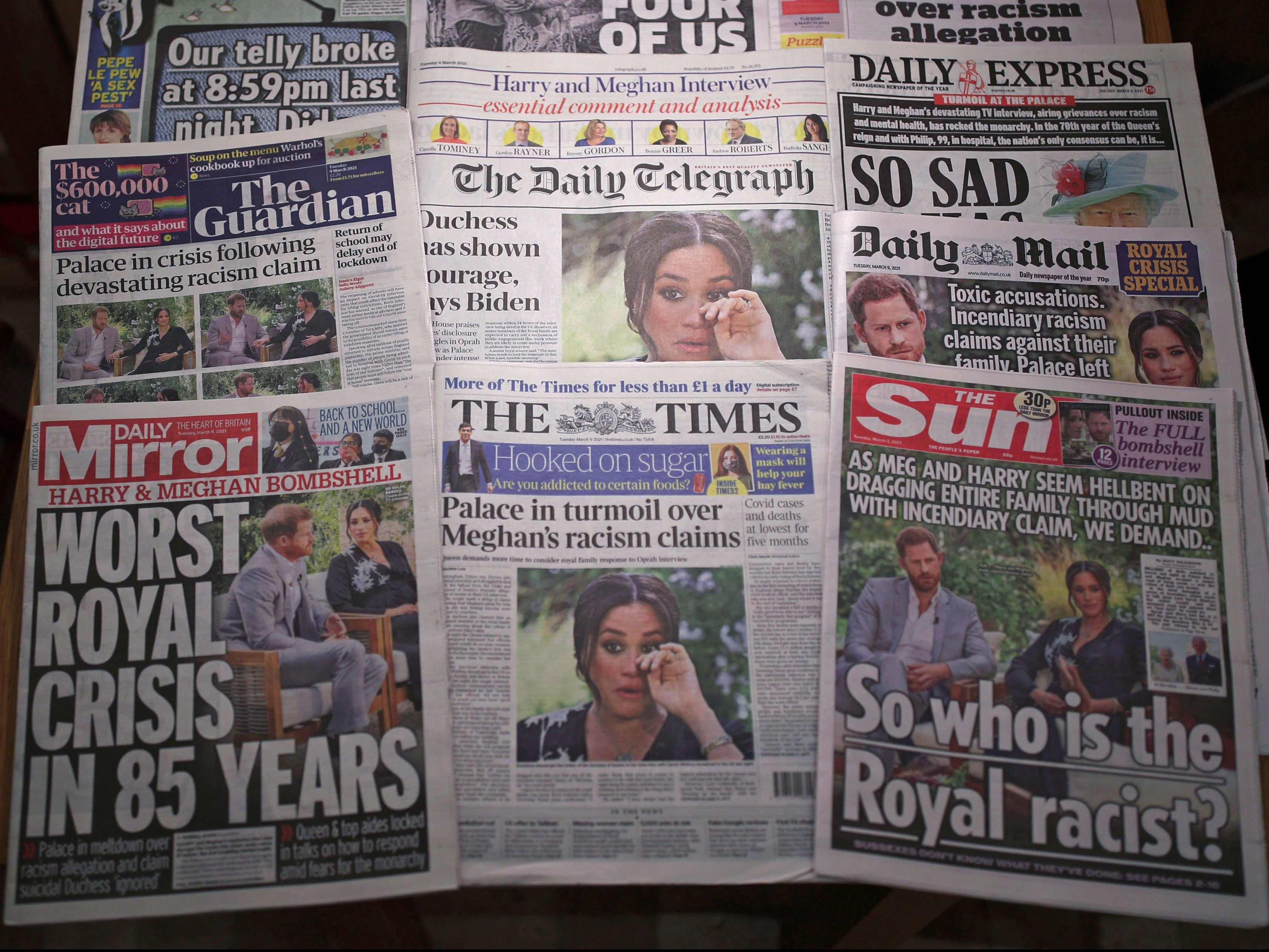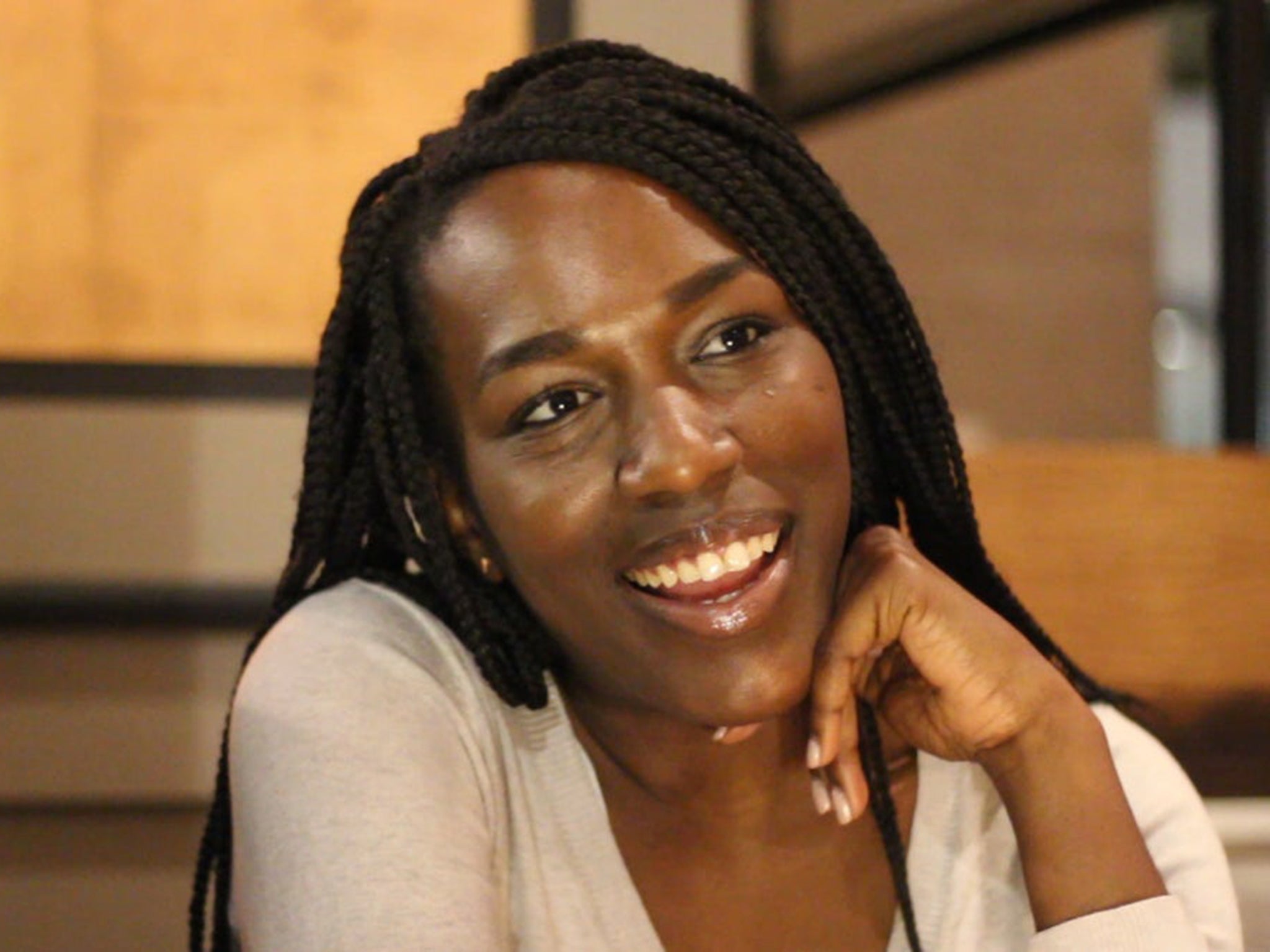Young people could be discouraged from becoming journalists due to racism denial, lecturers warn
Powerful editors’ denial of racism could harm industry diversity, academics fear

Denying that racism exists within the UK media could discourage young people of colour from pursuing careers in journalism, lecturers have warned.
In the wake of Harry and Meghan’s comments about the British media being “bigoted”, the Society of Editors (SoE) released a statement denying there was racism in the UK press.
Despite a backlash from across the industry – and within the Society of Editors itself – to the comments, there are fears that the row may already have discouraged young people thinking of becoming journalists at a time when mainstream publications are overwhelmingly white.
Hannah Ajala, who established the support platform We Are Black Journos, said the furore proved that British journalism had a “long way to go”.
The Society of Editor’s executive director, Ian Murray, stepped down on Wednesday following the row, so that the group could “rebuild its reputation”. He admitted that the initial statement should have been “clearer in its condemnation of bigotry”.
Ms Ajala, who is also a lecturer, told The Independent: “The ignorant statement could potentially turn off budding journalists as it may suggest that other editors in high positions have a similar mindset.
“British journalism has a long way to go, so him stepping down was a great decision. I hope his replacement understands the needs of the role.”

Simon Hinde, head of the journalism and publishing department at the London College of Communication, told The Independent: “Many of our students want to go into journalism precisely because they care deeply about issues of social justice and for an industry body to issue a statement that so obviously flies in the face of reality is bound to be discouraging.
“The SoE ought to reflect honestly on the prejudice and discrimination in the industry and commit to playing a part in addressing it, rather than petulantly trying to deny what everyone can see.”
Mr Hinde has called for the body to retract the statement and appoint more people of colour to its board.
In the fallout from the statement, Charlene White withdrew as host of the society’s National Press Awards, while some nominees have also withdrawn their entries.
Another London tutor, who has asked to remain anonymous for fear of being sacked, said their diverse student body already struggled with the prospect of entering an almost exclusively white industry and that the society’s comments had exacerbated the problem.
“Even if they weren’t aware of the Society of Editors before, what the statement said will really reinforce a lot of my students’ concerns about working in the industry,” they told The Independent.
“Many of those from minoritised backgrounds are anxious that, in order to get a foot on the ladder, they may need to work at a title which produces journalism that is not only diametrically opposite to their values but is actively harmful towards them as a group of people.
“There’s certainly that awareness about the calculations they must make as to whether its worth it to get that foot on the ladder in the hopes that they’ll be able to move onto somewhere they feel more comfortable.”
Studies have found the UK media industry is 94 per cent white, while just 0.2 per cent of journalists are Black, compared with 3.3 per cent of the population as a whole.
Dr Jasjit Singh, associate professor in media and religion at University of Leeds, said both aspiring and current journalists had become disillusioned.
“People of colour [who] are already in the profession are finding it tough going, as well as students. The whole incident has demonstrated the urgent need for diverse talent, particularly among the editorial classes .”

Michelle Stanistreet, general secretary of the National Union of Journalists, said: “It shouldn’t have surprised anyone that the Society of Editors rush to defend the record of the British press on race as unimpeachable sparked widespread anger and disbelief. Anyone working in the industry knows fine well that there is much to be done before the sector can credibly inhabit the moral high ground when it comes to race and diversity.
“No institution can point to a perfect record but journalism plays a special role in our society which means that media outlets have an added responsibility in walking the walk when it comes to putting diversity policies and warm words into practice.”
Johanna Payton, a lecturer in journalism at City, University of London, said while the statement was “shocking” her students were motivated to make a positive impact within the industry.
“What I see in the young journalists I teach every day is the drive and determination to force change. I don’t think they are surprised by such statements, but I don’t think the next generation of journalists is daunted by them either. I’ve certainly recognised in my own teaching that I need to be educated on a daily basis in terms of diversity – and the lack of it,” she told The Independent.
Similarly,Laura Garcia, a London-based tutor, added: “I hope this doesn’t discourage young people from going into the industry. I hope it does the complete opposite and inspires them to join forces with those of us working really hard to change journalism.”
Join our commenting forum
Join thought-provoking conversations, follow other Independent readers and see their replies
Comments

Bookmark popover
Removed from bookmarks